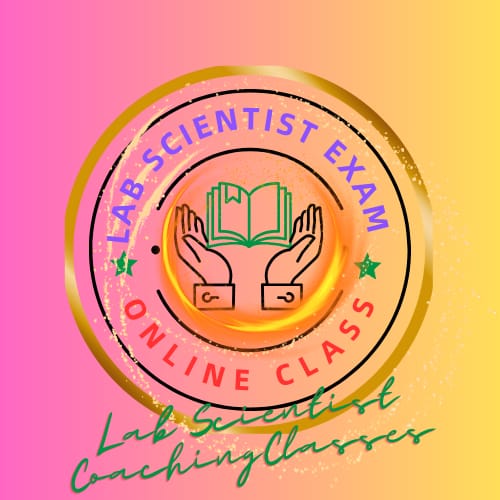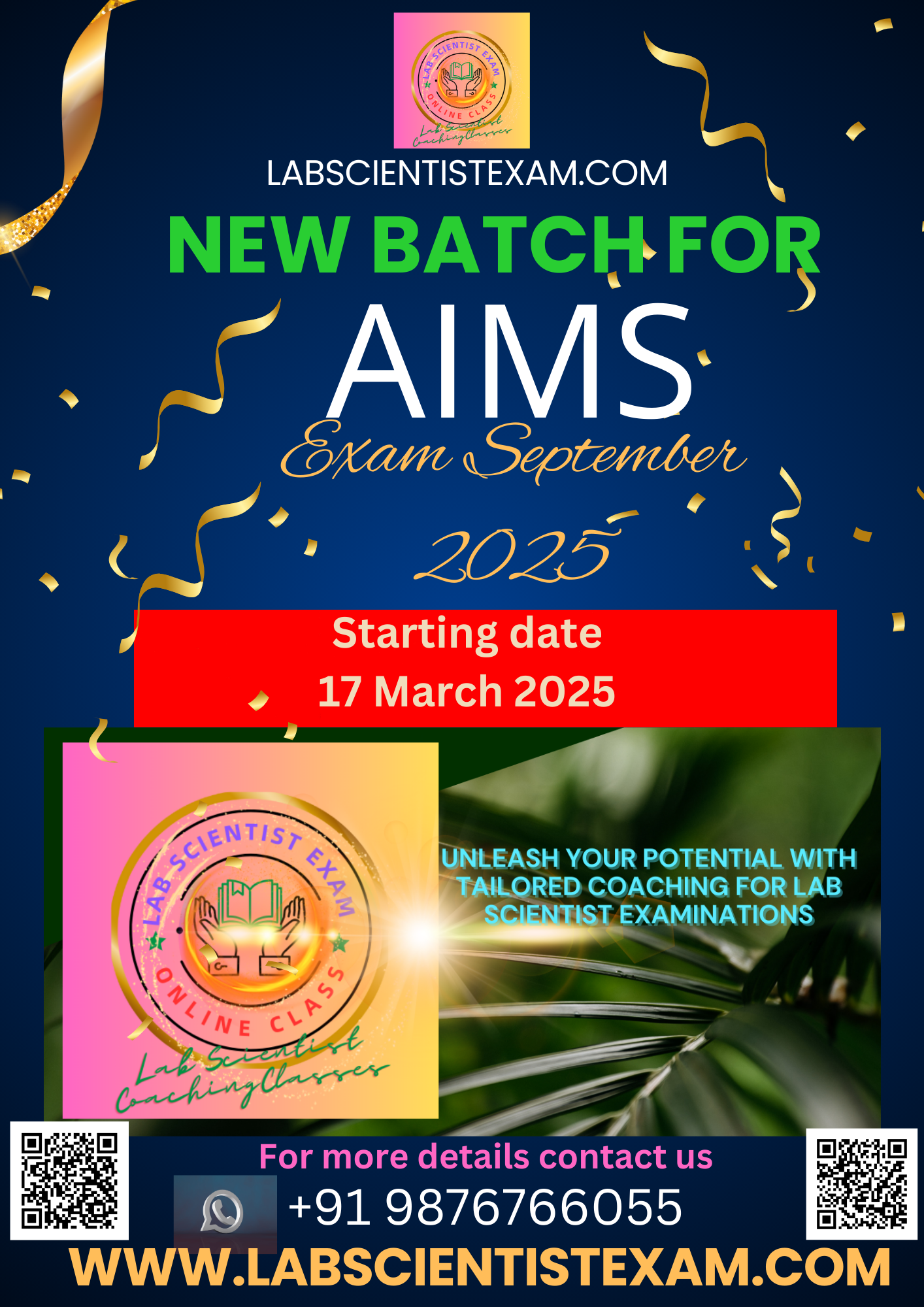???? New Rapid Crash Course + MCQs+ TEST Series – AIMS Sept 2025! ???? Course Dates: Approx. 90 hours ???? Subjects Covered: • Biochemistry • Hematology • Histology • Transfusion Science • Microbiology • Lab Management ???? Why Join? ✔ Focused revision on key topics ✔ Mock tests aligned with AIMS format+test series ✔ Expert mentors with personalized guidance ✔ Live, interactive online sessions

WE ENHANCE YOUR TALENT
Our Syllabus

Subject : Basic Laboratory Procedures and Equipment
• Normal and molar solutions
• Basic laboratory calculations
• Basic laboratory equipment and its appropriate use
• Spectrophotometry.
Subject : Transfusion Science
• Antibody structure and function
• Antigen / antibody interaction
• Antibody production
• Blood donation testing
• Blood components
• Blood group systems
• Antibody detection and identification
• Pre transfusion testing
• Haemolytic disease of the foetus and newborn
• Quality assurance in the blood bank laboratory
• Internal quality control and external quality assurance in the blood bank.
Subject : Medical Microbiology
• A basic knowledge of infectious diseases and organisms most commonly associated with these diseases. There will be a greater emphasis on bacterial diseases but some knowledge of parasitic fungal and viral disease is also expected
• Collection handling and processing of samples including the minimum criteria for acceptance of samples
• Knowledge of normal flora (indigenous flora) of major body sites or absence of normal flora in sterile body sites
• Presumptive identification of major groups of bacteria based on microscopic and colonial morphology on a variety of common media including chromogenic media and the use of key basic identification tests such as catalase oxidase and atmospheric growth re
• Principles of major methods of susceptibility testing disc diffusion agar dilution and broth dilution and the relationship between breakpoints MIC and susceptible / resistant categories • Microscopy: Function and maintenance of a modern binocular micro
• Staining techniques: Gram stain Ziehl Neelsen stain Modified ZN stains
• General principles of quality control and quality assurance as it applies to microbiology • Safety in the microbiology laboratory Biosafety Cabinets Biosafety levels.
Subject : HISTOLOGY
• Preparation of specimens for light microscopy including fixation and tissue processing decalcification technique and general staining methods such as Haematoxylin and Eosin stain Van Gieson stain and Masson Trichrome stain.
• Normal histology especially basic tissue types
• Histochemical methods as applied to light microscopy such as PAS and Perls Prussian Blue for Iron
• Fixation of cytological specimens
• The Papanicolaou staining technique
• The cytological features of inflammation and neoplasia in cervical smears
• Normal cell types in cytological specimens
• Preparation of specimens for light microscopy including fixation and tissue processing
decalcification technique and general staining methods such as Haematoxylin and Eosin stain Van Gieson stain and Masson Trichrome stain
Subject : HEMATOLOGY
Principles of automated cell counting
Macrocytic anaemia
Microcytic anaemia
Normocytic anaemia
Myeloproliferative disorders
Lymphoproliferative disorders
Production of erythrocytes
leucocytes and platelets
Iron metabolism
Intrinsic and extrinsic coagulation pathways and methods of testing
Bleeding disorders
Anticoagulant therapy and methods of monitoring this therapy
Natural anticoagulants
Fibrinolysis
Malaria testing and species
Quality control in haematology and coagulation
Pre-analytical factors in haematology and coagulation
Subject : Chemical Pathology
Blood gas and electrolytes measurement
Urea creatinine and creatinine clearance uric acid
Glucose glucose tolerance HbA1c
Liver function tests
Lipid analysis
Plasma proteins and protein electrophoresis Specific plasma proteins CRP
Principles of enzymatic analysis
Enzyme tests e.g.
amylase creatine kinase Calcium phosphate magnesium
Bilirubin including neonatal bilirubin measurement
Myocardial function tests
Common tumour markers e.g.
Prostatic specific antigen CEA
Basic virology tests now performed in core laboratory settings
Endocrinology such as Thyroid function tests and Adrenal function tests
Bioinstrumentation including Immunoassay spectrophotometric assays and Point of Care Testing
Quality Control concepts as they apply to the automated biochemistry laboratory.


_(300_x_228_px)_(200_x_200_px).jpg)

)_(YouTube_Thumbnail).png)

.png)
.jpg)